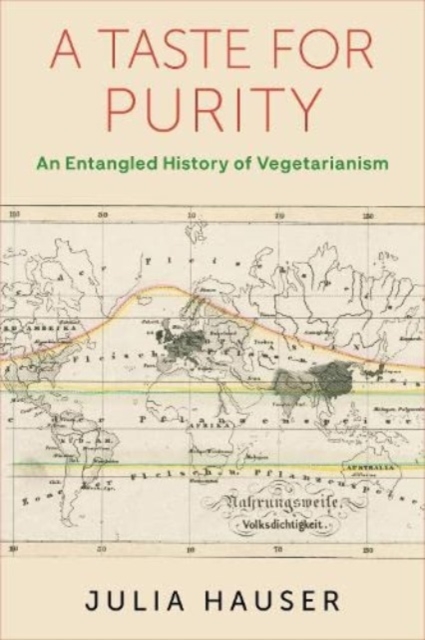
A Taste for Purity : An Entangled History of Vegetarianism Paperback / softback
by Julia Hauser
Part of the Columbia Studies in International and Global History series
Paperback / softback
Description
In nineteenth-century Europe and North America, an organized vegetarian movement began warning of the health risks and ethical problems of meat eating.
Presenting a vegetarian diet as a cure for the social ills brought on by industrialization and urbanization, this movement idealized South Asia as a model.
In colonial India, where diets were far more varied than Western admirers realized, new motives for avoiding meat also took hold.
Hindu nationalists claimed that vegetarianism would cleanse the body for anticolonial resistance, and an increasingly militant cow protection movement mobilized against meat eaters, particularly Muslims. Unearthing the connections among these developments and many others, Julia Hauser explores the global history of vegetarianism from the mid-nineteenth century to the early Cold War.
She traces personal networks and exchanges of knowledge spanning Europe, the United States, and South Asia, highlighting mutual influence as well as the disconnects of cross-cultural encounters.
Hauser argues that vegetarianism in this period was motivated by expansive visions of moral, physical, and even racial purification.
Adherents were convinced that society could be changed by transforming the body of the individual.
Hauser demonstrates that vegetarians in India and the West shared notions of purity, which drew some toward not only internationalism and anticolonialism but also racism, nationalism, and violence.
Finding preoccupations with race and masculinity as well as links to colonialism and eugenics, she reveals the implication of vegetarian movements in exclusionary, hierarchical projects.
Deeply researched and compellingly argued, A Taste for Purity rewrites the history of vegetarianism on a global scale.
Information
-
Only a few left - usually despatched within 24 hours
- Format:Paperback / softback
- Pages:368 pages
- Publisher:Columbia University Press
- Publication Date:05/12/2023
- Category:
- ISBN:9780231207539
Other Formats
- Hardback from £111.15
£30.00
£27.89
Information
-
Only a few left - usually despatched within 24 hours
- Format:Paperback / softback
- Pages:368 pages
- Publisher:Columbia University Press
- Publication Date:05/12/2023
- Category:
- ISBN:9780231207539










